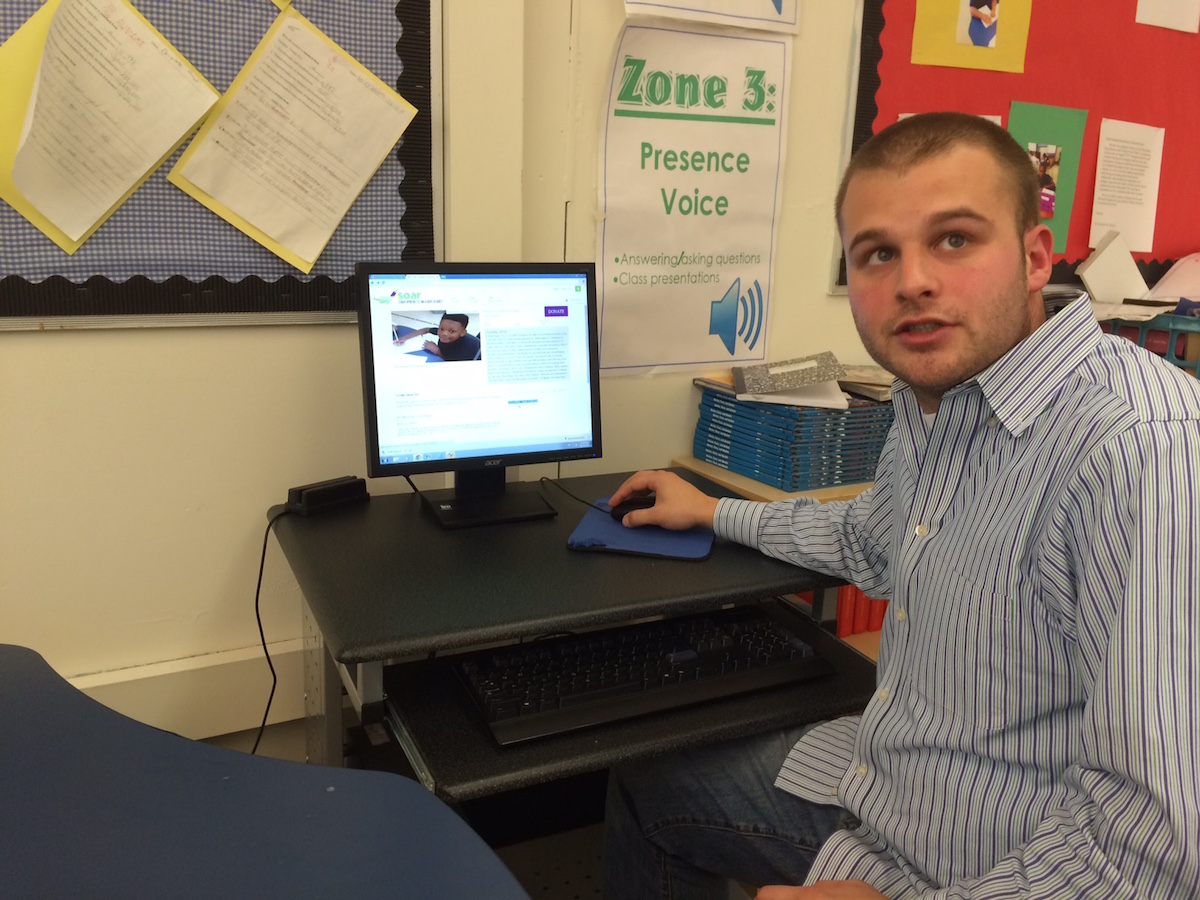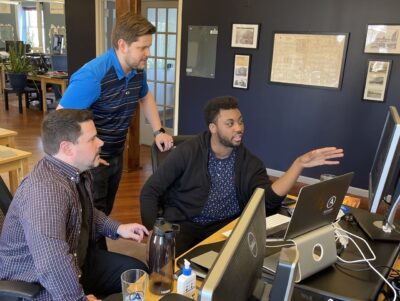Ahead of the Johns Hopkins Social Innovation Lab’s Impact and Innovation Forum on April 21, we’re profiling the entrepreneurs that are part of the current cohort.
Here’s a look at three startups addressing gaps in education:
Hero Lab
Each student in a group of middle-schoolers gathered by Hero Lab shared a common experience: losing a friend or family member to violence.
“Doing well in eighth grade isn’t really on their radar when there are life and death issues” at home, said Hero Lab’s Siddhi Sundar. She and cofounder Adil Qureshi believe confronting these adverse childhood experiences (ACEs, in education circles) at school can also help give students more hope and optimism, and the resilience required to improve in the classroom.
Working with Hero Lab, the school engaged the middle schoolers in a six-month program where they addressed and defined violence through poetry, film, multimedia and more.
After starting Hero Lab in Mumbai, India, Sundar and Qureshi brought the effort to Baltimore in May 2015. They are currently working with a half-dozen schools here. The connections and mentors at Social Innovation Lab have helped to adapt the program to the new location, Sundar said.
SOAR Baltimore
Send these kids to NYC for a trip of a lifetime! Almost there! https://t.co/kq4wPgl8WG pic.twitter.com/y6fRkBxcow
— SOAR Baltimore (@soarbaltimore) April 1, 2016
Former fifth-grade teacher Bobby Moore launched SOAR Baltimore last year to help teachers raise money for specific classroom projects. Now, a team of about six people are working on the crowdfunding platform, and they have raised about $11,000 for close to 100 projects.
Browsing through the active projects reveals a student in need of a laptop, a group that wants to perform with the school choir and even some math enthusiasts. Many of the requests are below $100, and the amounts pledged are also in the single or double digits. In a sense, it’s bringing the low-dollar donor idea currently being touted by political candidates like Bernie Sanders, and applying it to education.
Moore said he’s aiming to keep the projects collaborative, with parents, teachers and the students themselves all in agreement about what’s being funded. It also keeps things transparent for the funders.
“Donors know exactly what they’re funding and who they’re funding it for,” Moore said.
Baltimore Teacher Supply Swap

(Photo courtesy of Baltimore Teacher Supply Swap)
As a teacher in Baltimore City Public Schools, Melissa Badeker saw firsthand how teachers bought supplies using their own money — like, hundreds of dollars of their own money. When they got outdated or a teacher moved on, she saw those supplies going to the trash.
With the Baltimore Teacher Supply Swap, there’s a place where materials won’t go in the trash, and teachers won’t have to lay down cash. With help from a five-member board, the free store at Lutheran Church of the Holy Comforter in Mid-Govans has now been running for nearly two school years.
Badeker said she sought Social Innovation Lab to help make more connections and scale. The mentors in the program helped her quantify the work.
“After they helped us do that, we realized we had given away $30,000 worth of supplies in less than two years,” Badeker said.
Join the conversation!
Find news, events, jobs and people who share your interests on Technical.ly's open community Slack





